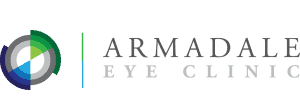How Long Does It Take to Recover from Cataract Surgery? Time of Healing
So, you’ve done the hard work, found yourself a reputable eye specialist, and are preparing yourself for cataract surgery. But then you remember that you have things to do, places to go, and people to see, and undergoing a prolonged period of cataract surgery recovery could possibly cause a sizeable dent in your busy schedule. How long does it take to recover from cataract surgery and what else do you need to know about the cataract surgery recovery period? Keep reading to find out.
How Long Does It Take to Recover from Eye Cataract Surgery?
As everybody (and every eye) is different, the length of time it takes to fully recover from cataract surgery can vary from person to person. Generally speaking, many people will feel that their vision has fully stabilised and their eye is back to normal (albeit with much clearer vision), about 4 to 6 weeks after their cataract surgery procedure. However, for some people, complete cataract surgery recovery can take up to 3 months.
Many people report clear vision as quickly as several hours after undergoing cataract surgery. However, as the eye heals physically, you may find your vision can fluctuate slightly as the weeks pass. You should also expect to experience some dryness, or mild irritation of your eye immediately after your cataract surgery procedure. This should improve over the few weeks following your operation, though in some people it can persist for months.

Certain risk factors are associated with a higher likelihood of experiencing a complication from cataract surgery, which may prolong your recovery time and require further medical intervention to restore your vision. These include certain having other eye conditions such as diabetic retinopathy, corneal disease, or a previous retinal detachment. Older age and having had a previous eye procedure called a vitrectomy can also increase your risk of complications. If you have any disorders that tend to make you slow to heal wounds, you may also find your cataract surgery recovery to be extended.
How to Minimise Your Cataract Surgery Recovery Time?
There are certain steps you can take to optimise your healing from cataract surgery and reduce your risk of experiencing a complication during the post-operative period. These are some general guidelines. However, it is important to follow whatever specific instructions your eye surgeon has given you.
Rest as needed
As with any surgical procedure, your body needs some time to recuperate after a cataract operation. You would have been advised in advance to have someone drive you home on the day of your procedure. However, your eye surgeon may also recommend you avoid driving for a little while longer until your eye and vision have been reassessed to ensure driving is safe for you.
If possible, try to also take a break from housework or other strenuous activities. This includes carrying heavy grocery bags, physical exercise, and even vigorous mopping or vacuuming.
Take your medications
Your eye surgeon will provide you with a prescription for two or three eye drops, which can be collected from the pharmacy. They include a preventative antibiotic, a steroid drop, and possibly also a non-steroidal anti-inflammatory medication. You’ll need to use the drops several times a day for them to be properly effective, so if the dosing regimen gets confusing, try to come up with a way to help keep yourself organised. This may involve setting an alarm on your phone when your drops are due or keeping track of a chart.
All three of these drops are important in the healing process for your eye and will play a part if you’re wondering how long does it take to recover from cataract treatment surgery. Be sure to complete the full course of these drops as you’ve been recommended, even if you think your eye is already feeling better sooner than expected.
Protect your eye health from trauma and contamination
As it recovers, your eye is more vulnerable to infection and injury. Avoid any activities that can result in trauma to your eye, whether it’s playing contact sports, coming too close to your very energetic puppy, or going outdoors on a blustery day. You will also want to stay away from environments that are particularly dusty or dirty during your cataract surgery healing period.
While it’s important to keep your eye clean, you don’t need to use any soaps, detergents, or cleansers; just use clean water to gently wipe your eye. Some eye surgeons will recommend you avoid washing your hair for the first couple of days so that no shower water and shampoo accidentally run into your operated eye. During the first week after your procedure, it’s a good idea to postpone any visits to the beach, spas or saunas, and swimming pools, as these bodies of water are common sources of a particular eye infection called acanthamoeba keratitis.
Contact for more cataract surgery healing information
If at any point your eye or vision don’t feel quite right, contact your eye surgeon on (03) 9070 5753 immediately.
Note: Any surgical or invasive procedure carries risks. Before proceeding, you should seek a second opinion from an appropriately qualified health practitioner.
















Leave a Reply
Want to join the discussion?Feel free to contribute!